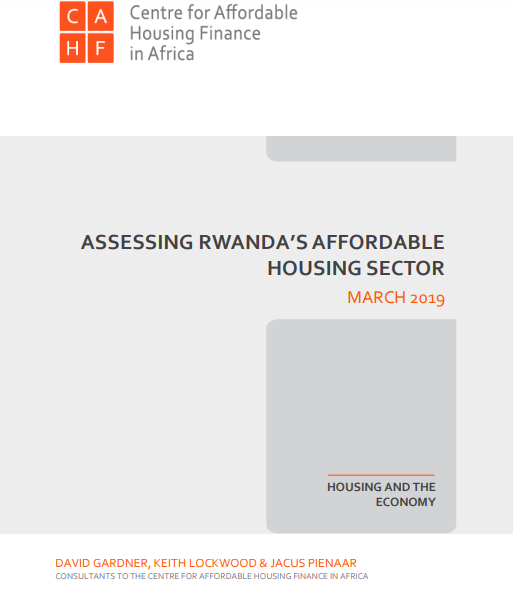Assessing Rwanda's Affordable Housing Sector

During 2018, CAHF worked with the World Bank and the International Finance Corporation (IFC) to develop a ‘Deep Dive’ report on the catalytic role the affordable housing sector could have on Rwanda’s future economic growth. The report forms part of CAHF’s Housing and the Economy work and will be used to identify and implement a plan of action for the World Bank Group’s future engagements and investments in Rwanda.
The analysis points to the high potential for Rwanda’s affordable housing sector to be a driver of future economic prosperity in the country. Using CAHF’s Housing Economic Value Chain assessment methodology, Rwanda’s housing economy is estimated to directly contribute 9.5 percent to Rwanda’s GDP (RWF724 billion / US$ 841 billion). Approximately 40 percent of this amount is gross value added in the housing construction sector, and 60 percent comprises intermediate inputs into house construction (materials and services). The importance of Rwanda’s informal housing development sector (SMMEs and households themselves) is also identified as an important element for future growth.
It is imperative that Rwanda’s future housing strategy drives the development of more affordable and appropriate housing for purchase and rental. This will require a combination of reducing the relatively high costs of housing development in Rwanda in comparison to other African countries, and providing more appropriate housing typologies, sizes and densities of housing that are better aligned with Rwanda’s projected rapid urban expansion. CAHF’s cost benchmarking study of standard house types found that a 55m2 house in Johannesburg was still less expensive than a 35m2 house with similar finishes in Kigali. Construction costs comprise 46 percent of the total cost of a fully completed 55m2 house in Kigali, and the balance comprises other inputs including land, infrastructure and compliance costs.
Based on this analysis and initial findings from the Housing Economic Value Chain and Housing Cost Benchmarking for Rwanda, the report offers initial recommendations for the future growth and development of the affordable housing sector as a lead economic sector in Rwanda.


Comments